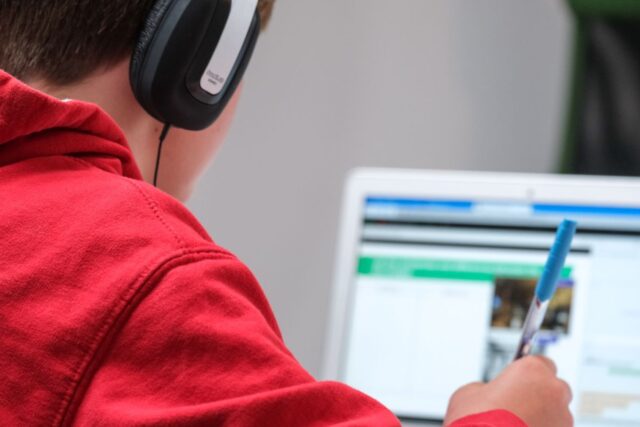
Contrary to what is often perceived as the leadership concept where being able to lead is the primary aspect, the educational paradigm that one observes today has changed quite a bit during the last few decades. Since the majority of students these days have to build relationships online to meet the requirements of remote education, it takes even more effort to listen and process information. This is where leadership skills take us into a different environment where one should focus on the building of socio-emotional ground. Starting with teamwork and cooperation with research projects and debates to those cases when a leader offers help to learners who cannot cope with the tasks, the objectives of student leadership require peculiar analysis even more than ever before.
The Importance of Student Leadership In Education
The Creative Mindset

It’s hard to deny that strong leaders should inspire and motivate others, which is why it’s vital to stay in a creative mindset and perceive information differently with an open mind. Start by learning beyond the course materials and explore things independently. If you belong to educators, keep things creative as well because the trick is to provide this something that will help students belong to the subject and the things that are being discussed. Even if there are complex subjects, a strong leader will walk the extra mile to explain the concept and add a personal vibe to it!
Accuracy In Everything & Timely Work
One of the most important aspects of student leadership in education is accuracy in every task and avoidance of procrastination as the assignments are being delivered on time. After all, when a student is able to control their skills and schedules, it shows that they can achieve the same qualities everywhere. There may be several ways how to develop leadership skills, yet starting with accuracy and coordination should be one of the first steps that shouldn’t be ignored. Create custom schedules, add alerts to your phone, train yourself regarding your resources and planning, and your leadership skills will have a strong foundation.
Analysis Skills
Leadership in education is paramount because it teaches how to analyze things and tell wrong from right. Regardless of what subject you may address, starting with analysis helps to change things drastically. Turning to analysis also helps to compare existing opinions and sort information without leaning towards one or another side if it’s not required. When the grading rubric is provided, a strong leader will explore the instructions differently by feeling confident and asking questions even if something remains unclear.
Feedback Between Teachers & Students.

Another factor that must be mentioned regarding student leadership in education is positive feedback between teachers and learners. It became even more important these days as we are struggling with remote education and lack of physical contact. The presence of strong leadership skills on both sides will help to appreciate the information and stay empathic. The students who are not afraid of training their social skills will be able to not only learn but also master what they are being told and follow only positive examples. Once there is cooperation, patience, and the readiness to listen, even the most complex concepts are getting mastered.
Team Projects
These are always considered the cornerstone of student leadership. Still, almost every team project ends up with those students that become leaders and show the way and those that keep quiet. One of the possible solutions would be the presence of debates and interactive games where everyone is involved. Unlike those team projects where everyone does their part individually, it helps to liven things up a bit. If you cannot cope with your part for a joint assignment or need to check for adjustability, consider Pro Essay Service when you require assistance. If you have an expert proofread, edit and structure your content, it will help you to feel more confident and know how to present your thoughts and ideas.
Remote Education Challenges

The major challenge with student leadership worth mentioning is accessibility, which makes the presence of relevant soft skills even more crucial. For example, when a video conference takes place, those students that know how to manage information will help others to lead the way and show the most efficient solutions. When every learner is left alone to cope with the difficulties, everyone feels lost as there are both mental and physical differences. Being a leader helps to adjust things and work as a team.
Soft Skills & Empathy
While there are different types of leadership that can be encountered in education from autocratic and democratic to affiliate and paternalistic styles, students should turn to empathy first of all. Even if some other management styles might be chosen at a later stage, one should possess certain soft skills that can only be mastered if one learns how to listen and help others. Since the leadership aspect discussed relates to education, the purpose here is cooperation, which is why one should consider the coaching leadership style as a way to process and share information.
Unbiased Attitude & Attitude to Information
Since the majority of students these days are accessing learning materials online, they have to process a plethora of different information, which is often very far from being reliable. It brings up certain concerns related to individuality and being able to present information without bias. This is where leadership skills help to analyze information differently and avoid the use of unverified sources, which is especially important with multimedia sources or social media references.
The Responsibility Factor

The leadership skills cannot appear out of the blue or be mastered like a scientific concept in engineering because it’s what students have to learn, often with trial and error. This fact makes things quite challenging if educators fail to start with analysis, strategic thinking, and sharing of existing responsibilities. A good example of such shared duties is a cloud-based learning management platform called Socrative where students gain more rights and responsibilities. Turning to surveys, debates, joint projects, progressive grading, and focus on individual progress helps to build responsible leaders where one does not turn to comparisons or fear of becoming an outsider. Since everyone takes part in every task with no exception, it helps to create a strong team where everyone feels equal and responsible.












